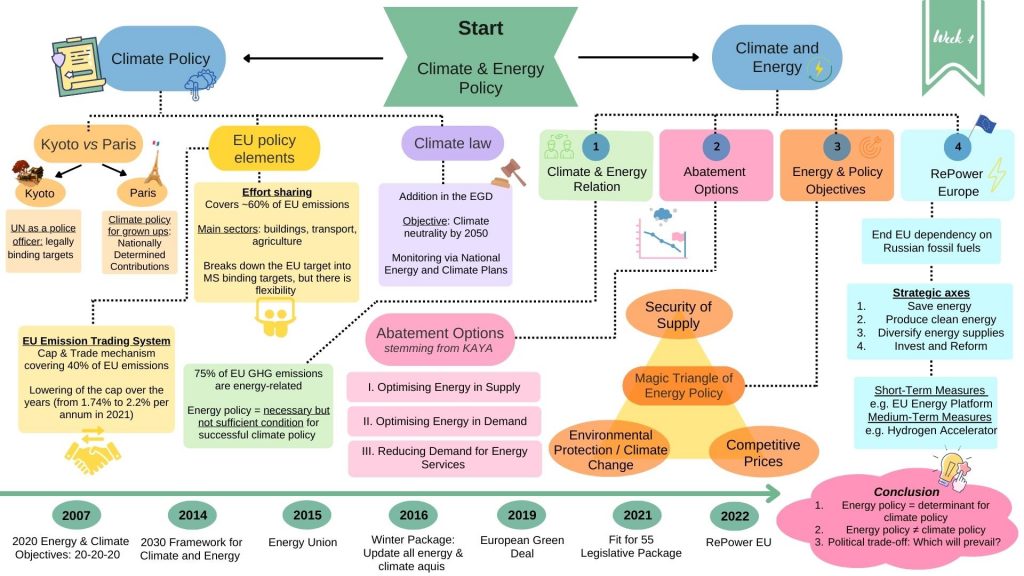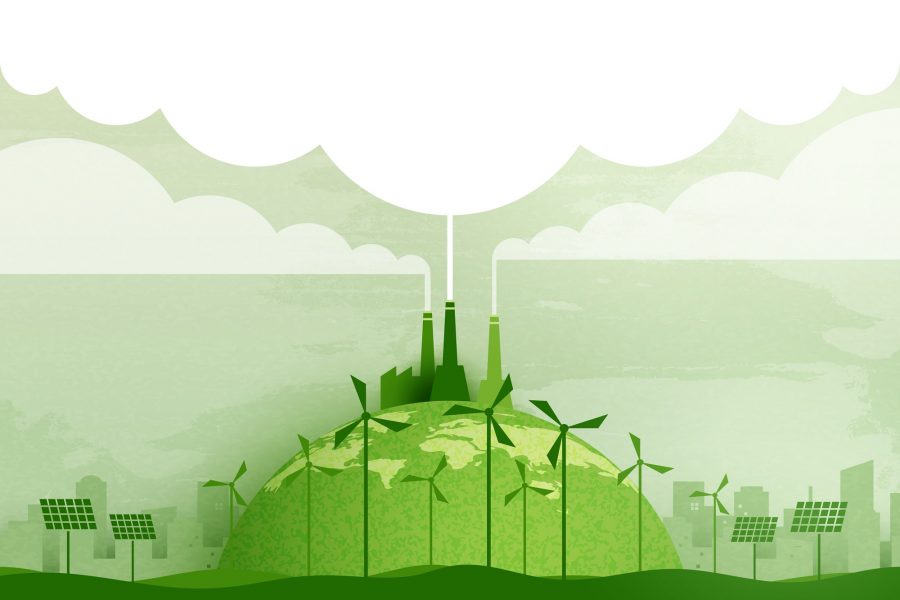European Sustainable Energy Week: Clean energy for Europe’s climate transition
29 September 2022
Renewable Energy Sources
4 October 2022Manon Chenailler, Kristína Feiková and Mara Förster
The European Green Deal outlines the EU’s ambition to reach net zero emissions by 2050. As 75% of GHG emissions within the EU are energy-related, it is evident that energy regulations have to be put in place in order to mitigate climate change.
Within the international climate framework, the 2015 Paris Agreement introduced a new concept of nationally determined contributions, which are supplemented with global stocktaking. Within the EU climate framework, there exist two main climate policy tools: the Emissions Trading System (ETS), covering 40% of the EU’s GHG emissions under its cap-and-trade mechanism, and the Effort Sharing Regulation (ESR), covering most of the remaining 60%.
Energy policies are determined along three lines of interest: environmental protection, competitiveness of prices and security of supply. Determining a prioritisation within energy policies will necessarily require a political trade-off, leaving open the question on which side will prevail in the future. Despite the EU’s efforts to implement climate policies, regulating energy policy is a necessary but not a sufficient solution to reach net neutrality, as energy makes up only a share of the total factors involved in affecting climate change.



